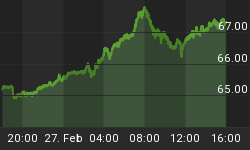The artificially-engendered revival of the dispute, which began in February 2010 between Argentina and the United Kingdom over the sovereignty of the Falkland Islands in the South Atlantic, has been portrayed as a posturing by embattled Argentine Pres. Cristina Fernández de Kirchner, taking advantage of both the start of exploratory oil and gas drilling by British company Desire Petroleum in the Falklands waters, and the talks by Latin American and Caribbean leaders of the Rio Group in the Mexican resort of Playa del Carmen, beginning on February 22, 2010. But the crisis may well play into the political posturing of equally embattled United Kingdom Prime Minister Gordon Brown, who faces a general election by June 2010 at the latest.
Britain's presently governing Labour Party is as conscious -- almost superstitiously so -- of the fact that the 1982 Falklands War with Argentina revived the flagging fortunes of incumbent Conservative Prime Minister Margaret Thatcher, just as the US Democratic Party is fixated on the belief that Democratic Pres. Lyndon Johnson failed to win a second term in office because of being embroiled in the Vietnam War. As a result, the British Labour Party is unlikely to attempt to quell the dispute in the short term between the UK and Argentina, even though it plays strongly into the hands of Pres. Fernández de Kirchner.
The increasingly leftist bloc within Latin America, prompted and often financed by Venezuelan Pres. Hugo Chávez Frias, obliged Pres. Fernández on February 22, 2010, in Mexico by endorsing her attacks on the UK position and the assertion of Argentine sovereignty over the Falklands. It is clear, however, that Argentina's population and Armed Forces are in no position to resume any form of military conflict with the United Kingdom over the Falklands, even though British forces are themselves stretched by engagement in Afghanistan.
In many senses, though, this represents a possible "win-win" approach for Venezuelan Pres. Chávez, who is integrated strategically with his two principal allies, Iran and Russia, and, to a degree, the People's Republic of China (PRC), in that any threat to the Falkands could bring about a redeployment of UK forces out of Afghanistan and into the Falklands. This, too, could assist in the re-election of Gordon Brown's Labour Government in the UK, which would be preferable to Chávez as well as to Iran and Russia than the election of a Conservative Government in the UK.
As well, the episode strengthens the Rio Group, which is consolidating at the expense of the Organization of American States (OAS) and the US' now almost moribund Monroe Doctrine.
As a result, the entire "storm in a South Atlantic tea-cup" will neither result in renewed conflict between Argentina and the UK in the near future, but will further the political positions of Pres. Chávez, Pres. Fernández, Prime Minister Brown, and the strategic positions of the PRC, Iran, and Russia - all three of which have commercial-strategic as well as geopolitical interests in South America, if only to minimize or contain US influence.
Anaysis By GIS/Defense & Foreign Affairs Staff for oilprice.com who focus on, Fossil Fuels Metals, Crude Oil Prices and Geopolitics To find out more visit their website at: http://www.oilprice.com















